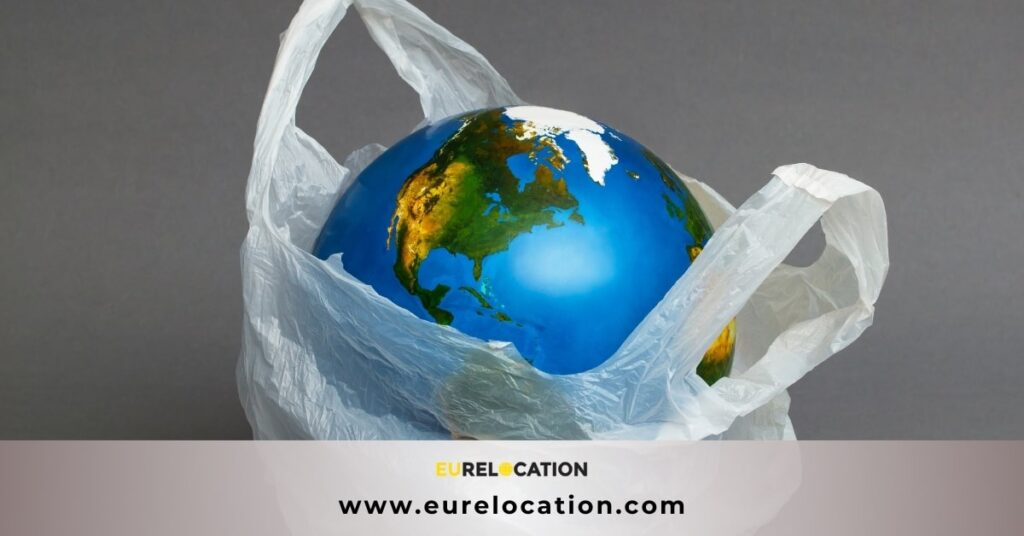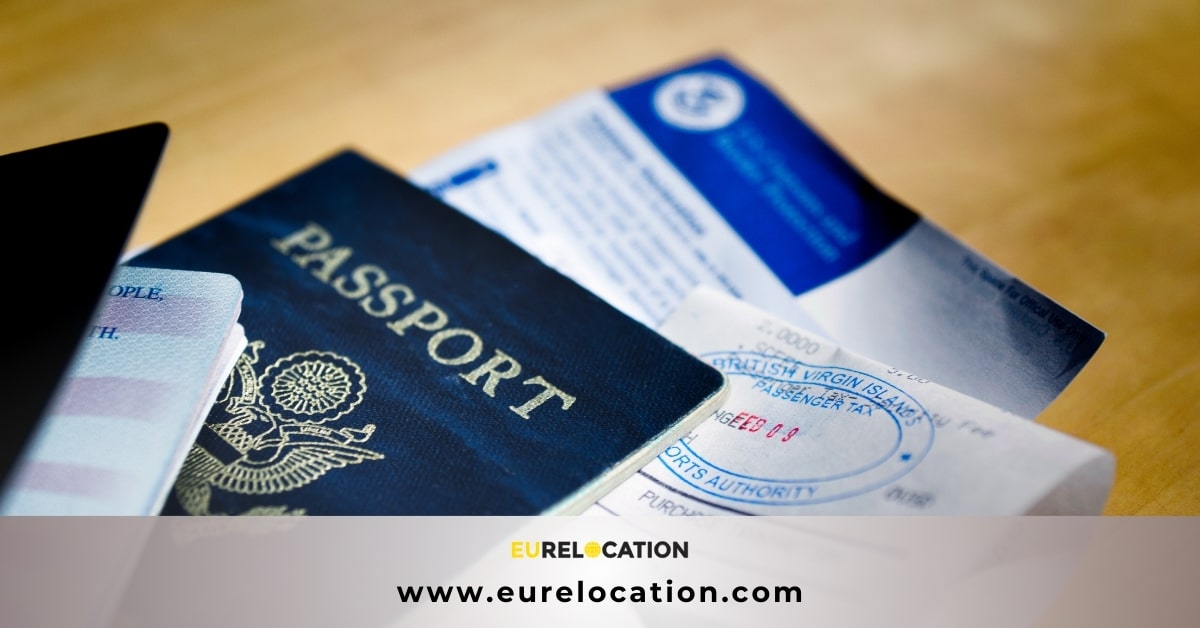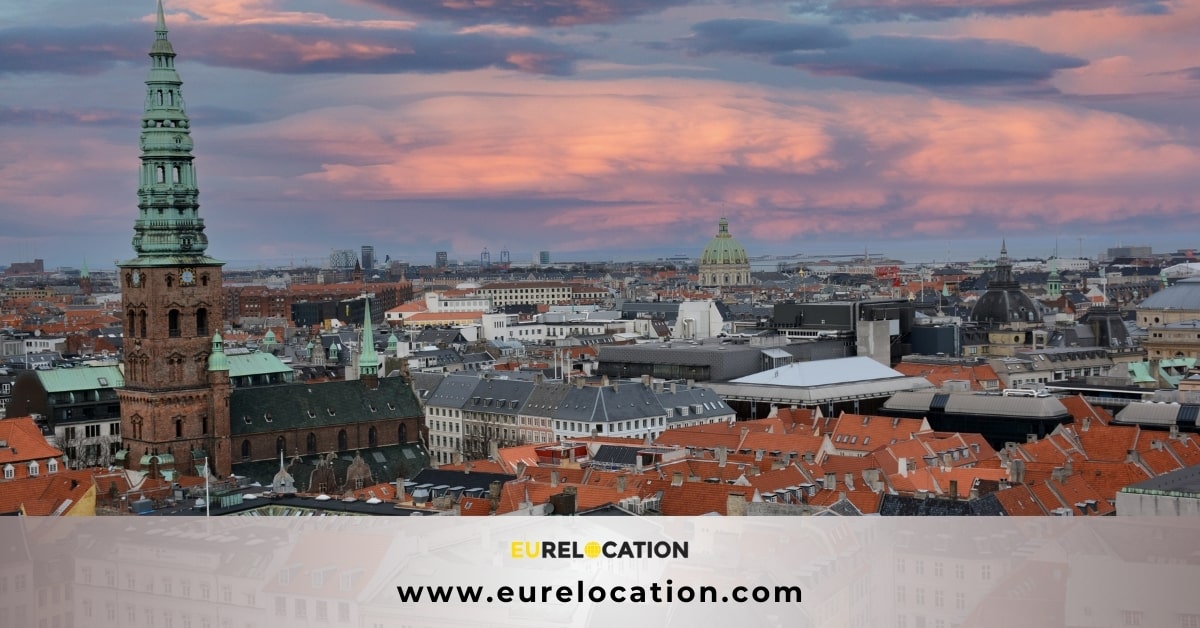Europe is working hard to reduce plastic use and waste. By creating new laws, boosting recycling, and finding better materials, many European countries are leading the way to a plastic-free future. Here’s how they’re making this vision a reality:
How Europe is Moving Toward a Plastic-Free Future
Banning Single-Use Plastics
Many European countries have started banning single-use plastics—items like straws, plates, and cutlery that are used once and thrown away. The European Union’s 2019 rule limits these items, encouraging people to use reusable or biodegradable products instead. For example, France has banned plastic cups and containers to cut down on waste at the source.
These bans target common items that often end up as litter. By reducing their use, European countries aim to reduce plastic waste and encourage people to choose reusable options.
Encouraging Recycling and Reuse
Europe is focused on recycling and reusing plastic to cut down waste. In Germany, the “Green Dot” program requires companies to pay fees based on the amount of packaging they use. This system motivates businesses to use less plastic and choose materials that are easier to recycle.
Sweden and Denmark have also set up bottle deposit return systems, where people get a small refund when they return plastic bottles for recycling. This approach has led to high recycling rates and is a model other countries are considering. In the Netherlands, “zero waste” stores, which avoid plastic packaging altogether, are also gaining popularity.
Investing in Eco-Friendly Alternatives
Europe is putting money into developing new, earth-friendly materials that can replace plastic. For instance, Finland and the Netherlands are researching biodegradable plastics that break down faster than regular plastics, helping reduce waste.
Other countries, like Spain, are also exploring plant-based packaging that can be composted, so it returns to the soil instead of polluting it. These investments help reduce Europe’s reliance on traditional plastics and provide cleaner alternatives.
Raising Awareness and Involving the Public
Public awareness campaigns are a big part of Europe’s plan. Many European countries are teaching people about the harmful effects of plastic waste on oceans, animals, and our health. For example, the UK has community clean-up events along rivers and beaches to encourage people to take action against plastic pollution.
Schools and local groups are getting involved, too, teaching kids and families to make choices that reduce plastic waste. Campaigns like “Plastic-Free July” challenge people to avoid plastic for a month, helping them see how small changes can make a big difference.
Working Together Across Borders
Plastic waste often travels through rivers and coastlines, ending up in oceans. Reducing plastic pollution requires teamwork, since rivers connect many countries. The European Union funds joint projects like “Zero Plastics to the Oceans,” which aims to stop plastic waste from flowing into the sea.
Countries are working together to clean up major rivers like the Danube and Rhine, as well as polluted coastlines along the Mediterranean and Baltic Seas. By sharing ideas and working as a team, these countries make a bigger impact in the fight against plastic waste.
FAQs: Europe’s Plastic-Free Future
Why is Europe working toward a plastic-free future?
Europe is aiming for a plastic-free future to reduce pollution and protect the environment. Plastic waste is harmful to wildlife, oceans, and rivers, and it takes hundreds of years to break down. Reducing plastic use helps make a cleaner, safer world.
What are single-use plastics, and why are they being banned?
Single-use plastics are items like straws, bags, and cups that are used once and then thrown away. They are often not recyclable and end up as litter, especially in oceans. Banning them helps reduce waste and encourages the use of reusable or compostable products.
How do bottle deposit systems work, and why are they helpful?
Deposit return systems let people get a small refund when they bring back plastic bottles to be recycled. This encourages recycling by giving people a reward, making it an effective way to reduce litter and keep plastic out of landfills.
Are biodegradable plastics better for the environment?
Yes, biodegradable plastics are designed to break down faster than regular plastics. However, they still need to be disposed of correctly to fully decompose. Europe is investing in these eco-friendly materials to cut down on plastic waste, but it’s important to recycle them properly.
How can people help support a plastic-free future?
Individuals can help by using fewer single-use plastics, recycling more, and choosing reusable products. Joining local clean-up events and supporting plastic-free campaigns are also great ways to make a difference.
What challenges does Europe face in its goal to be plastic-free?
One challenge is finding affordable alternatives to plastic that work for all products. Another challenge is ensuring that all countries have the right facilities to recycle and compost these new materials. Continued public support and awareness are also needed to keep up the momentum.
Conclusion
Europe’s path to a plastic-free future includes strong rules, better recycling systems, new materials, and teamwork across countries. By working together, European countries are reducing plastic waste, protecting oceans and wildlife, and setting an example for other parts of the world. As more people and regions join these efforts, the goal of a cleaner, plastic-free future becomes more achievable.









